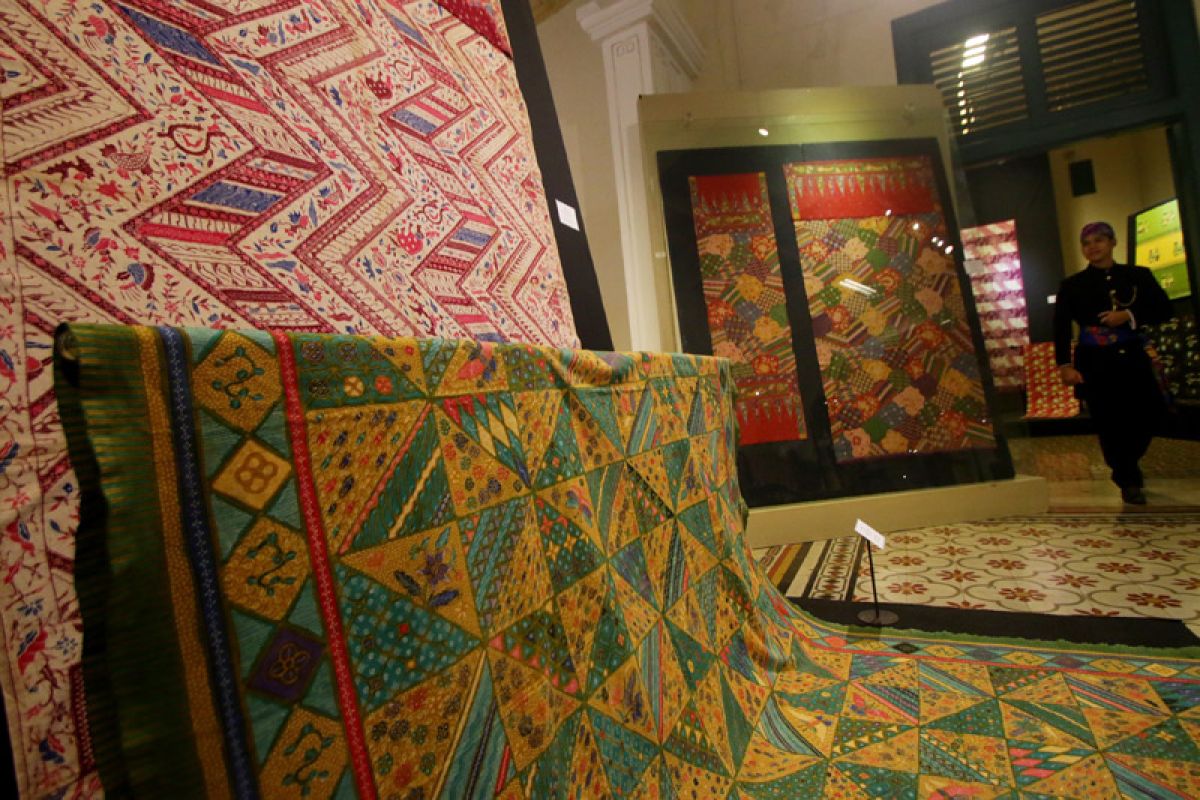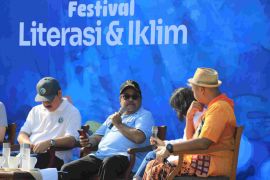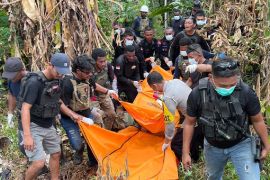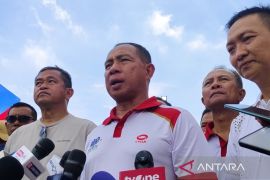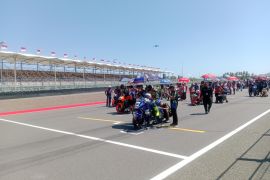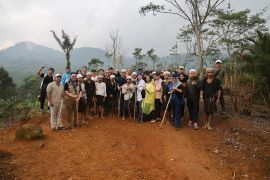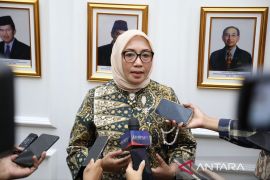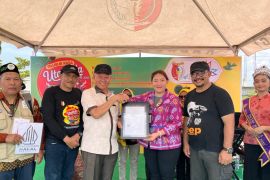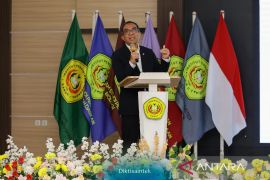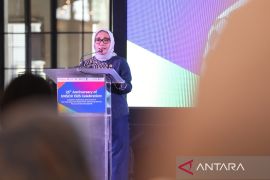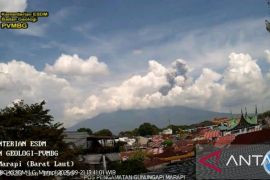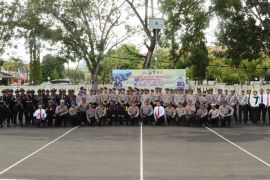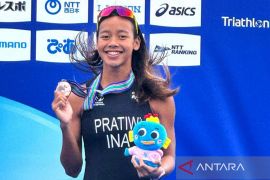The Ministry of Industry had noted that the export value of batik and its products in 2017 had reached US$58.46 million, with major export destinations, including Japan, the United States, and Europe.
The national batik industry has comparative and competitive aspects in the international market. Indonesia is also a market leader that controls the global batik market. The trade value of apparel products currently reaches $442 billion.
The Ministry of Industry`s Director General for Small and Medium Enterprises (SMEs) Gati Wibawaningsih remarked this could be a huge opportunity for the national batik industry to increase its market share, considering it is one of the raw materials for apparel products.
"Our batik industry is dominated by SMEs spread in 101 centers across the country, with total employment absorption reaching a workforce of 15 thousand," Wibawaningsih noted while adding that the potential of the batik industry continues to be developed in line with the government`s efforts to encourage the export-oriented labor-intensive industry.
In order to boost productivity and competitiveness of the national batik industry, the Ministry of Industry has implemented several strategic programs, such as to improve workers` competencies and to develop quality of the products.
"When Indonesia became the market leader that controlled the world batik market. Based on competition with Malaysia, China, and Singapore, which also produce batik, we need to be aware of ensuring our batik continues to maintain the position of the national batik competitiveness," Gati noted.
To this end, Indonesia needs to maintain and preserve the cultural value of batik by strengthening branding and protecting intellectual property rights.
Furthermore, he conveyed this to Pasar Tiban Anne Avantie to commemorate the 73rd Independence Day of the Republic of Indonesia, on August 14-19, 2018, based on the theme "Once Freedom Remains Independent."
In the event to boost the charm of batik, Gati lauded Anne Avantie, who had consistently held this Pasar Tiban event by involving the SMI players.
Avantie`s efforts are in fact in line with the government`s efforts to develop the country`s fashion industry.
"The Tiban Market, held by Ms. Anne Avantie, is one form of designer support for the government`s efforts in developing the national fashion industry, and this needs to be modeled by other designers," he added.
Promotion and Exhibition
Moreover, the Ministry has applied standardization in the batik industry, provided the machinery and production equipment, and organized promotion and exhibitions both in Indonesia and abroad.
"One of the activities is to hold the XII Batik Cultural Exhibition at the Industry Exhibition Plaza, collaborating with Indonesian Batik Foundation (YBI)," the director general stated.
This exhibition aims to promote the superior works of batik craftsmen in the country as well as to expand their market that is dominated by small and medium enterprises.
This year`s exhibition themed "Cerah Ceria Pesona Batik Madura," or Bright and Cheer the Charm of Batik Madura, will be held on May 15-18, 2018, with a total of 48 participants.
Some of the participants exhibit their products that use natural dyes reflecting their efforts to produce environment-friendly products and have high added value.
"Development of natural dyes also reduces the need to import synthetic dyes," he stated.
In the meantime, Minister of Industry Airlangga Hartarto noted that the ministry continues to encourage the craftsmen and national batik industry to continue to innovate in order to create various natural colors. This is being undertaken in a bid to explore the potential of Indonesian batik with natural colors.
"Moreover, we have an e-Smart program for Small and Medium Enterprises that aims to encourage business entities to enter online marketing," Airlangga noted while adding that this program will act as one of the strategic measures towards the implementation of industrial revolution 4.0.
However, the designer`s skills will be able to boost the economic value of the products produced by the craftsmen. Local ethnic alloys in fashion products become one of Indonesia`s fashion identities.
"The homeland fashion industry has a comparative and competitive advantage. Our fashion products are of good quality and can be accepted in the international market. Touches of wastra, such as batik and weaving, add a unique touch to Indonesian fashion products that other countries lack," Airlangga pointed out.
Currently, the Ministry of Industry continues to develop the national batik industry through various programs, including enhancing HR competencies, developing product quality, standardizing, facilitating machinery and equipment, and holding batik exhibitions at home and abroad.
Other programs to encourage new entrepreneurs, especially for SMIs comprise the government`s program to strengthen vocational education in the fashion industry that is certified by SKKNI, facilitating the ease of People`s Business Credit, machine and equipment restructuring, and promotion facilitation.
In addition, mentoring design experts, enhancing HR competencies, and strengthening branding of fashion products are aimed at increasing consumer demand for domestic products.
Edited by Sri Haryati
Reporter: Eliswan Azly
Editor: Heru Purwanto
Copyright © ANTARA 2018
